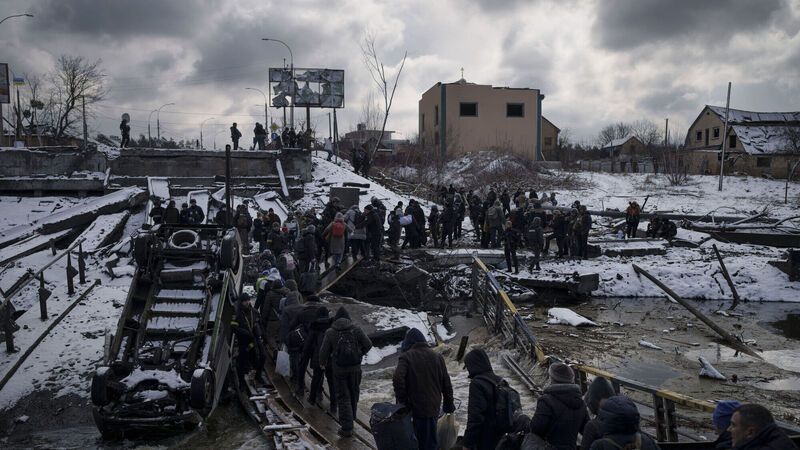Ukraine: Joe Biden announces 'powerful blow' as US bans all Russian oil imports

Ukrainians cross an improvised path under a destroyed bridge while fleeing Irpin, in the outskirts of Kyiv, Ukraine. Picture: AP Photo/Felipe Dana
Joe Biden has announced the US will ban all Russian oil imports, toughening the toll on Russia’s economy in retaliation for its invasion of Ukraine, but he acknowledged it will bring costs to Americans, particularly at the petrol pump.
The action follows pleas by Ukrainian President Volodymyr Zelenskyy to western officials to cut off the imports, which had been a glaring omission in massive sanctions put in place on Russia.











